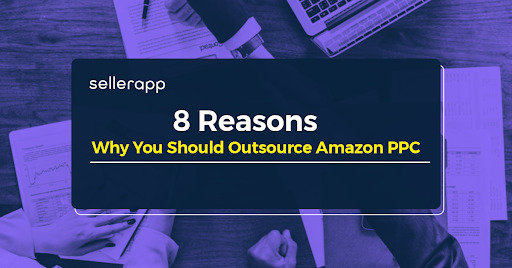Amazon Marketing Stream: An Optimal Way to Analyzing Campaign Performance

When it comes to advertising, timing is everything.
You want to show your ads to shoppers when they are most likely to buy your products.
For example, advertising on a raincoat during monsoon is more likely to get you sales than serving the same ad in summer.
However, determining the optimal times to run your ads on Amazon has always been a challenge for marketers until Amazon Marketing Stream (AMS) came along.
AMS gives you near real-time access to your Amazon campaign performance, along with detailed intraday insights and notifications on campaign state changes.
With AMS and a seller tool like SellerApp, you can create precise dayparting campaigns, reduce wasted ad spend, and improve your return on ad spend (ROAS).
Want to know more about the Amazon Marketing stream? Let’s dive straight into it.
A quick peek into the article:
- What is Amazon Marketing Stream
- Benefits of Amazon Marketing Stream
- Types Of Data Available In Amazon Marketing Stream
- How to Start Using Marketing Stream Data
- How to Leverage Amazon Marketing Stream
- Final Thoughts
What is Amazon Marketing Stream
Amazon Marketing Stream is a push-based data-streaming service that provides advertisers near real-time advertising data without needing to call an API repeatedly throughout the day.
Unlike the current method of “pulling” reports from an API, AMS is designed to answer questions before you need to ask.
With Amazon Marketing Stream, you can access and process new data dimensions faster and easier. It also saves time and helps you make data-driven decisions by providing a granular view of advertising performance.
Benefits of Amazon Marketing Stream for Advertisers
Amazon’s Marketing Stream has several benefits for advertisers. Here are some of them:
Improved Data Granularity
Amazon Marketing Stream provides advertisers with hourly traffic and conversion data. It allows you to analyze and optimize your campaigns more effectively. For example, if a particular ad campaign is not performing well during certain hours of the day, move the advertising budget from that specific time period to a high-performing time period to increase your ROAS.
Learn more about it in the SellerApp Dayparting guide.
No Throttling
For brands to be successful, they need to monitor advertising data constantly. But with a pull-based API, it can get messy quickly, with multiple requests coming in at the same time.
On the other hand, with push-based data streaming on AMS, you don’t have to worry about servers breaking due to high load or volume.
Results – Advertisers get real-time data without interruptions, ensuring the accuracy of campaign insights.
Near Real-time Messaging
Amazon Marketing Stream gives notifications about budget consumption. For example, AMS notifies you if your campaigns run out of budget. With this immediate feedback, you can make necessary budget adjustments quickly to ensure their ads run smoothly and effectively.
Reporting Dimensions
Amazon Marketing Stream offers a broader range of reporting dimensions than other reports. While API-based reports can show performance separately at the target ID, placement, or ad level, Amazon Marketing Stream combines data for these dimensions and gives a comprehensive overview of campaign performance.
Types Of Data Available In Amazon Marketing Stream
Amazon’s Marketing Stream currently provides two dataset types: reporting and messaging.
Reporting Data
It includes processed advertising performance data, such as hourly traffic and conversions, along with other necessary dimensions for analytics. It allows advertisers to analyze ad campaign performance and make data-driven decisions precisely.
Messaging Data
The messaging data includes updates regarding campaign, ad group, ad, and targeting entity changes. Also, advertisers receive budget consumption notifications whenever their budget allotment changes by more than 5%.
In the future, Amazon plans to add messaging data for product eligibility, bid recommendations, and other significant events to this messaging data.
This real-time messaging allows advertisers to stay updated on campaign changes and take immediate action to optimize their campaigns.
Recommendations
Aside from reporting and messaging data, Amazon Marketing Stream also provides advertisers with recommendations. These recommendations offer valuable insights to optimize or create ad campaigns.
With these recommendations, advertisers can enhance ad performance and achieve better results.
How to Start Using Marketing Stream Data
As of now, the only way to access all the stream data is through the Amazon Ads API. This means you can’t get the data on your Amazon Advertising Console, Seller Central, or Vendor Central. You need a third-party solution.
Collaborating with any reputed Amazon Marketing Agency will ensure the best use and implementation of these data insights. Luckily, SellerApp has been offering a dayparting feature for advertisers. With the release of Amazon Marketing Stream, we’ve been able to provide all the real-time campaign performance data within our dashboard.

As a SellerApp user, you can now easily monitor the daily and hourly breakdown of your campaign performance metrics like sales, spent, ACoS, orders, and clicks. It helps you create an effective dayparting schedule that reduces wasted ad spend and improves advertising performance.
To learn more about SellerApp Stream, check out this detailed walkthrough:
How to Leverage Amazon Marketing Stream
Our advertising experts have leveraged Amazon’s Marketing Stream for a long time and developed strategies to optimize brand growth using near-real-time insights.
In the next section, we break down three of these strategies that you can implement immediately in your campaigns and generate better success.
Get Hourly Shopping Behavior Insights
With Amazon Marketing Stream, you can get granular insights into the hourly shopping behavior of your target audience. With this data, make strategic decisions about when to allocate your advertising budget.

Suppose you’re selling fitness equipment. When looking at the Amazon Marketing Stream data, you see that most of the attributed sales are happening on Mondays, followed by Wednesdays during the 7 AM to 3 PM time window.

Note: The deeper the color, the higher the attributed sales.
With this information, you can adjust your dayparting budget to display your fitness equipment ads during peak hours, maximizing your reach and sales.
Understand Seasonal Trends
Beyond daily insights, Amazon Marketing Stream also helps you discover holiday trends.
Let’s take the example of an apparel brand during Prime Day 2023.
If you look through the Marketing Stream data for the week leading up to the event, you can see a high number of clicks on Sunday and Monday but comparatively fewer orders/attributed sales.

It shows that most shoppers have window-shopped during that time frame.
You can see that attributed sales volume peaked from 10 AM to 1 PM on Day 1. Day 2, however, saw much lower sales. In addition, ACoS and ad spending were also spread out throughout the day rather than within a concentrated period.

It shows that most shoppers have chosen the products they wanted to purchase during Prime Day ahead of time and grabbed them on Day 1 itself.
However, if you see the sales data after Prime Day, Thursday and Friday generated a significant amount of attributed sales with relatively low ACoS.
It indicates that shoppers are still warm and buying products even after the Prime Day events.
Based on these insights, you can distribute your budget appropriately between the lead-in, Prime Day event, and the lead-out phase.
Pro tip: Allocate more budget on Prime Day 1 as it gets more sales compared to Prime Day 2.
Understand Seasonality and Optimize Budget Allocation: Coolibar Case Study
Coolibar, a sun protection clothing brand, faced difficulties in scaling and marketing their seasonal products effectively.
SellerApp, powered with historical sales data, helped Coolibar develop a comprehensive advertising strategy, including Sponsored Display ads, Sponsored Products, and Sponsored Brands, to reposition their summer offerings.
And the results were nothing short of extraordinary. Coolibar has experienced a remarkable 177.5% increase in revenue and a staggering 202% surge in total units sold over just 7 months.
All this while maintaining an impressive ACoS of 14% and a TACoS of 6.8%.
Want to generate similar results? SellerApp can help you with that.
We’ve already helped 20,000+ brands like Phillips Coca-Cola to scale their business with customized advertising strategies. And we can do the same for you.
Optimize Campaigns Efficiency
Efficiency is crucial in advertising. You want to ensure that you’re getting the most out of your advertising budget.
Amazon Marketing Stream provides hourly data on various advertising metrics like ACoS, clicks, and attributed sales for each campaign. It helps you identify bid optimization opportunities to improve campaign performance.
Example: Let’s say you’re running a campaign for a popular consumer electronics product.

Amazon Marketing Stream reveals that the clicks are consistently higher from 4 PM to 5 PM but generate low orders. It indicates that this time, people are not in the buying mood. They are mostly window shopping.
So, you better shift your ad budget from this time period to another period to generate better sales without burning more dollars.
Final Thoughts
Amazon Marketing Stream is a powerful solution for advertisers to maximize advertising performance.
Using hourly advertising insights, you can determine shopping trends and allocate your budget more efficiently.
Whether you’re promoting products year-round or gearing up for seasonal spikes, Amazon Marketing Stream can be a valuable asset in your advertising toolkit.
SellerApp customers now can get a significant competitive edge as they can leverage the power of Amazon Marketing Stream right on the SellerApp dashboard.
Schedule a call with us and discover how SellerApp transforms your advertising strategies to improve your bottom line.











Samuel Green
September 29, 2023Awesome post! Can’t wait for the next one.
Clare Thomas
March 12, 2024Thanks! Your enthusiasm is much appreciated, stay tuned for more great content.
Robert Gabriel
September 29, 2023Awesome breakdown of Amazon Marketing Stream! Concise insights for maximizing campaign performance. Cheers to the author for the valuable tips
Clare Thomas
March 12, 2024Glad you found the insights helpful for optimizing your campaigns.
Cynthia
November 3, 2023Great read on Amazon Marketing Stream! Super helpful insights for optimizing campaign performance. Short, sweet, and to the point
Clare Thomas
March 12, 2024Thank you! Glad you found it helpful!